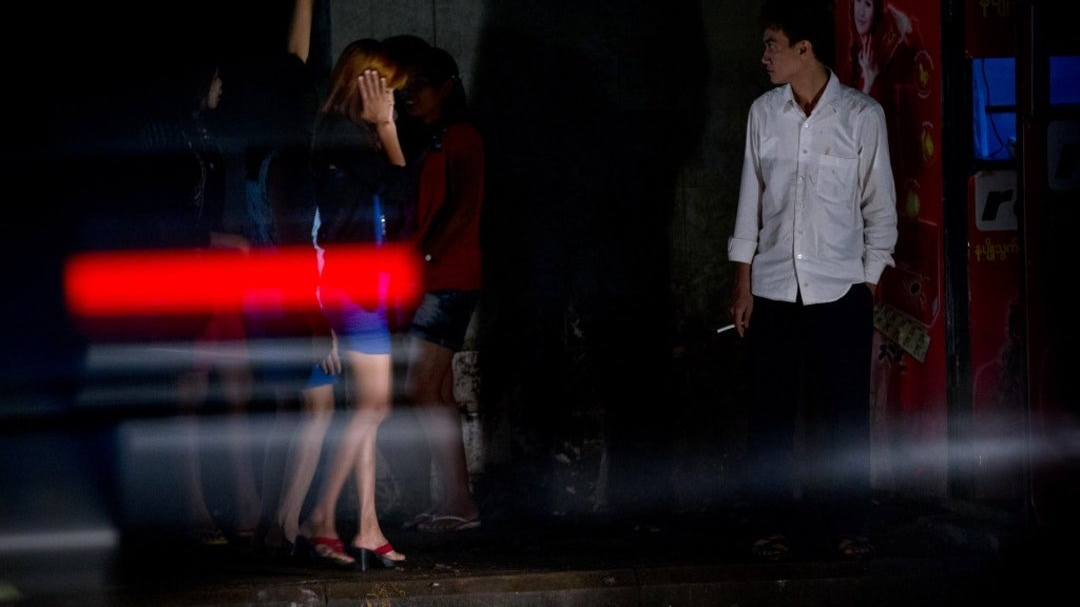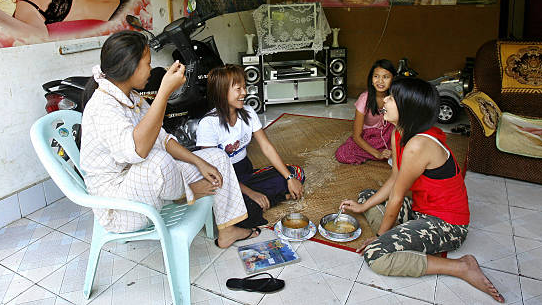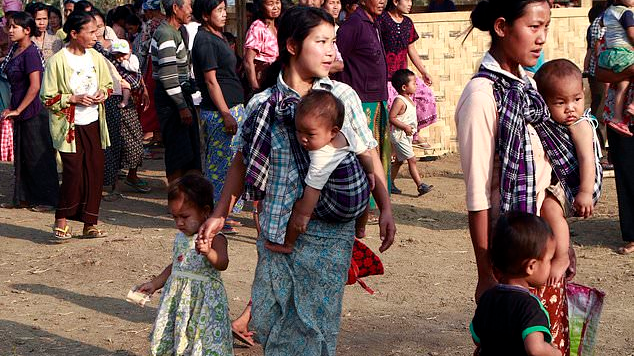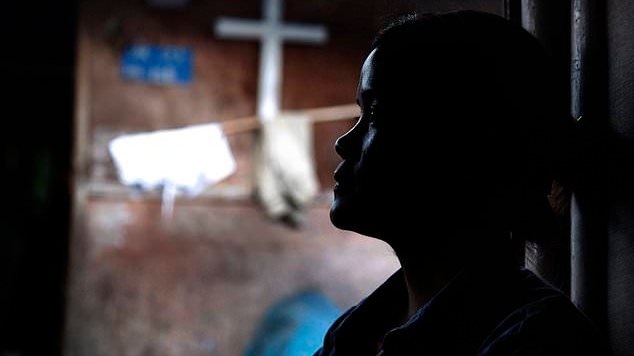
Prostitution is widespread in Myanmar. /AP
Prostitution is widespread in Myanmar. /AP
When offered a lifeline that could lift them out of a destitute situation, impoverished women in Myanmar often have little choice but to become sex workers.
In a country long pervaded by poverty, many Myanmarese are destitute of basic necessities needed to sustain their lives. According to a 2017 report by the Asian Development Bank, 24.8 percent of Myanmar's 53 million people lived below the national poverty lines, meaning roughly 13 million had less than 1,590 kyats (1.20 U.S. dollars) per day.
Living on the fringe of society
This bleak reality has driven many Myanmar women to join what is an illegal but highly vibrant industry in the country – the sex industry.
"Recruiters, often women in their 30s, would travel to rural areas where impoverished households are more prevalent and find new recruits to come work for them," Zhou, who runs businesses that cross pathways with the sector in Yangon, told CGTN.
"They would usually offer a decent sum of money in return for a signed contract which binds the girls to them for a couple of months," added Zhou, who preferred not to give his full name.
Due to the poor living conditions they face, these families are often willing to send their daughters away.
"Some of these households are living in thatched cottages or log cabins, and it is not uncommon to see 10 or more people from the same family cramping inside the small, humble houses," Zhou said.
Having too many children is one of the factors that drives parents to let their daughters go. As abortion is illegal in the Buddhist-majority country and Myanmarese typically feel ashamed of purchasing contraceptive drugs, pregnant women often have little option but to keep their babies, which can lead to unintentionally large households.
"Without the ability to provide for their children, the families are more likely to ignore the nature of the work their daughters are expecting," Zhou said. "But the girls are not sold to the recruiters; they are just offered a contracted job elsewhere."
Some women also join the sex trade because they have friends or relatives already involved in the business, and through them they have learned of the potentials – making money that is otherwise impossible to come by.
"Employment opportunities are not exactly scant, but many of the jobs they can do pay very poorly," Zhou said. "Some sex workers can make about 78,000 kyats (60 U.S. dollars) in one day, which is much more than what they can make per month if they choose to do other jobs."

Sex workers eat together during a break in a brothel in Myanmar. /Getty
Sex workers eat together during a break in a brothel in Myanmar. /Getty
Many women in Myanmar become sex workers because of compelling financial reasons. According to a 2015 report by CARE International, they cited lack of work, dependent family members and their duty to support them as the main reasons for entering this line of work.
The report also noted that some women considered alternative forms of employment before turning to sex work, but the monthly salary of these jobs – 25,000 kyats (19 U.S. dollars) for a salesperson in a mall, or 35,000 kyats (26 U.S. dollars) for a waitress at a restaurant – could not support a life independent of their families.
Once they enter this industry, women are also remarkably vulnerable to HIV/AIDs and other sexually transmitted infections, due to the infrequent use of condoms by sex workers.
Myanmar has one of Asia's highest adult HIV prevalence rates, with estimates putting the number of people living with HIV/AIDS around 240,000 and sex workers consistently identified as one of the main groups prone to contracting the virus. Despite the fact that new HIV infections have significantly dropped over the years, they still stand at a noticeably high rate. Last year alone, around 10,000 new infections were reported by UNAIDS.
Apart from having a low awareness about HIV, factors contributing to sex workers' limited use of condoms include the higher rates charged for unprotected sex, restrictions placed by managers on mobility and the influence of common practice among their peers, the CARE report showed.
"Most organizations that run them don't supply condoms," Zhou said. "Many sex workers find it inconvenient to buy condoms and whether they use them mostly depends on whether the customers have brought them."
Prostitution is widespread in Myanmar. There are an estimated 66,000 sex workers in the country.
But the industry, according to Zhou, is largely ignored by law enforcement and police care little about prostitution. "They tend to focus their energy on suppressing drug and gambling activities, and some police officers are sympathetic to women who feel compelled to do sex work due to a lack of other options."
Murky policing when it comes to prostitution is believed to have led to rampant corruption and exposed sex workers to extra abuse in order to stay out of trouble. There have been reports of local police officers routinely tipping off brothel operators ahead of government-led raids in exchange for bribes, and of women being forced to offer sexual favors for fear of arrest.
Rights groups say it is difficult for sex workers to report human rights violations, especially by police and health care providers. In some cases, carrying condoms can be used as evidence for arrest, according to Kay Thi Win, regional coordinator of the Asia Pacific Network of Sex Workers.

Women are disproportionately affected by extreme poverty in conflict-ridden northern Myanmar. /AP
Women are disproportionately affected by extreme poverty in conflict-ridden northern Myanmar. /AP
Trafficked abroad, shunned at home
Women in Myanmar are disproportionately impacted by hardships brought on by wartime conditions. In Kachin and Shan states in the country's conflict-stricken north, women and children make up between 76 and 78 percent of the internally displaced population.
But gender barriers have prevented those women and girls from accessing humanitarian relief or equally benefiting from socio-economic development as their specific protection needs go unheard, Helena Sandesjo, program officer for the International Organization for Migration (IOM) in Yangon, told CGTN.
The UN migration agency said the lack of employment opportunities is contributing to the vulnerability of migrant women. Even Myanmar women and underage girls who seek better livelihood options across the border in China risk being trafficked into sex exploitation and forced marriages, a well-documented criminal activity fueled by the gender imbalance in some parts of China.

A trafficking survivor sits in her family's shelter in a refugee camp in northern Kachin State, Myanmar. /AP
A trafficking survivor sits in her family's shelter in a refugee camp in northern Kachin State, Myanmar. /AP
Authorities on both sides have been working closely with NGOs to stem sex trafficking and facilitate the return of rescued victims. However, women returning from abroad, including those who migrated for work or escaped trafficking ordeals, face obstacles being accepted back into their communities because of conservative attitudes in Myanmar society.
Their struggle to reintegrate due to stigmatization potentially exposes returnees to a spiraling cycle of marginalization, further exploitation and even re-trafficking, according to the IOM.
The organization noted that regular migration for work and cross-border marriages are not always an act of desperation, but also a choice for women lacking options back home.
"It is important to view women and girls as agents, not merely victims, and empower them to make their own decisions," said Sandesjo, citing access to information on safe and regular migration, humanitarian aid and more options for income-generating activities as main areas for improvement, as well as reducing stigma and discrimination.
Sandesjo also noted that enhancing bilateral cooperation with China to facilitate regular migration for Myanmar workers will help to reduce this vulnerability to trafficking and the exploitation of these women.